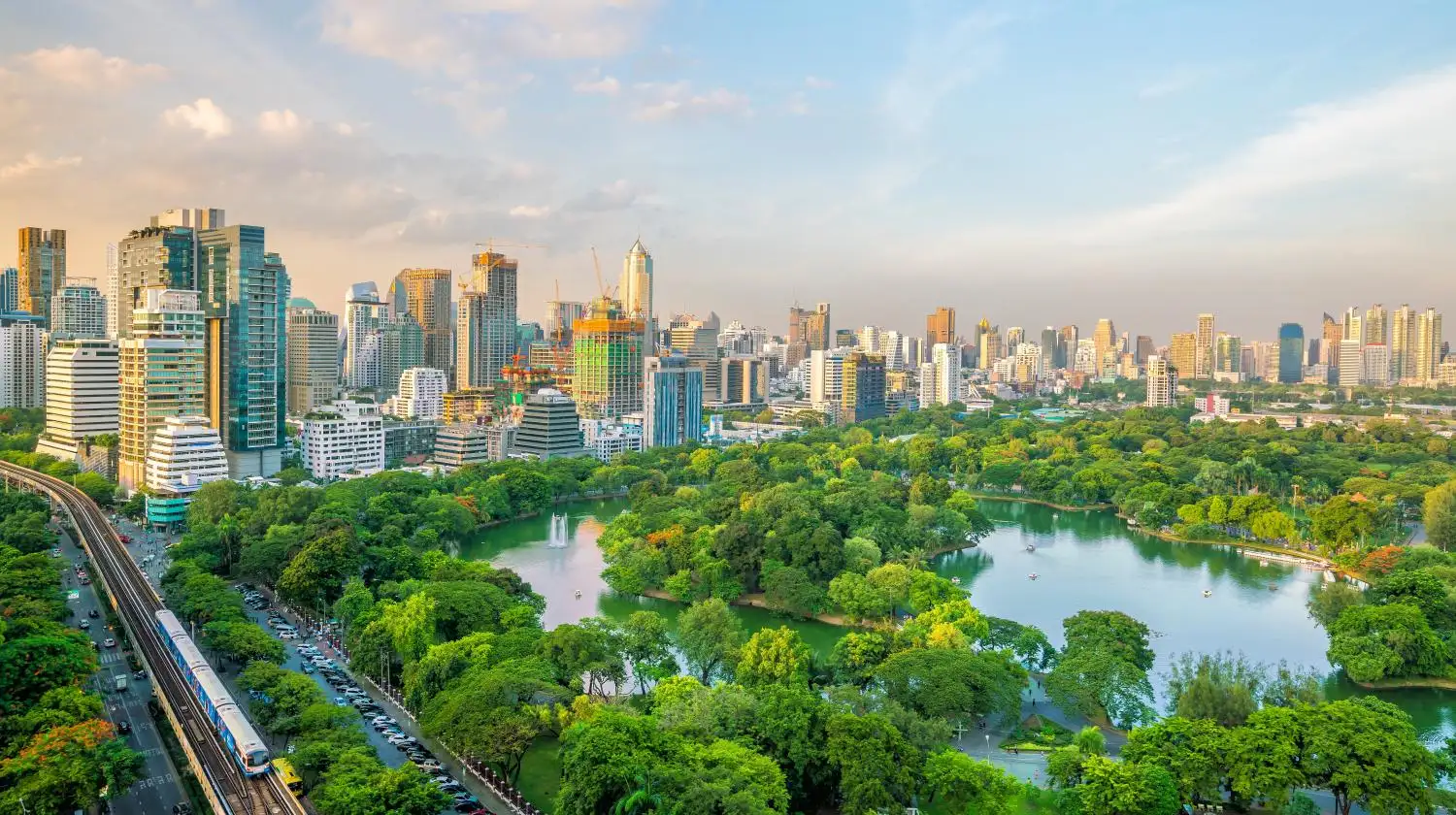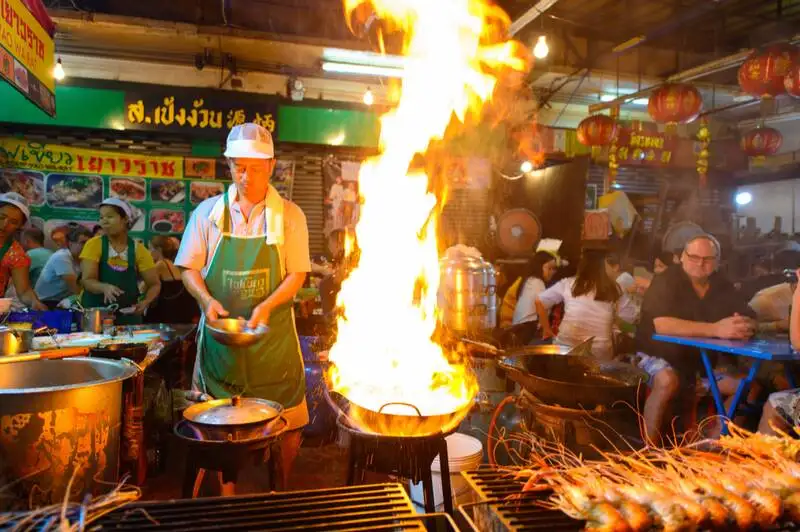Bangkok, Thailand’s vibrant capital, is a city of contrasts—ancient temples stand alongside towering skyscrapers, street food stalls thrive near Michelin-starred restaurants, and bustling markets coexist with serene parks. For expats, digital nomads, and retirees, the question “Is Bangkok a good place to live?” is increasingly relevant in 2025, as the city attracts millions with its affordability, culture, and dynamic lifestyle. With its ranking as the world’s most-visited city (25 million tourists projected in 2025, per Thailand’s Tourism Authority) and a 59.2 safety index (Numbeo 2025), Bangkok offers compelling reasons to call it home. Here are the top reasons to consider moving to Bangkok, optimized for the key phrase Bangkok good place to live.
Affordable cost of living
Bangkok is one of Asia’s most budget-friendly capitals, making it a standout reason why Bangkok is a good place to live. According to Numbeo 2025, a single person’s monthly expenses (excluding rent) average 20,000–30,000 THB ($600–900), covering food, transport, and utilities. Rent for a one-bedroom apartment ranges from:
- City center: 15,000–25,000 THB ($450–750)
- Suburbs like On Nut or Ari: 8,000–15,000 THB ($240–450)
Street food meals cost ~50–100 THB ($1.50–3), while utilities (electricity, water, internet) run ~2,500 THB ($75) monthly. Compared to cities like Singapore or Tokyo, Bangkok’s low costs allow a comfortable lifestyle on a modest income, ideal for expats and retirees.
Vibrant culture and lifestyle
Bangkok’s rich cultural tapestry is a major draw for those seeking a dynamic place to live. The city blends tradition and modernity, offering:
- Temples and history: Explore the Grand Palace, Wat Pho, and Wat Arun, showcasing Thailand’s Buddhist heritage.
- Festivals: Songkran (April water festival) and Loy Krathong (November lantern festival) bring communities together.
- Nightlife and dining: From Khao San Road’s backpacker bars to rooftop venues like Vertigo, plus Michelin-listed street food in Chinatown (Yaowarat), Bangkok caters to all tastes.
This cultural vibrancy ensures Bangkok is a good place to live for those who crave diverse experiences, from traditional Thai dance at Erawan Shrine to art galleries like MOCA Bangkok.
Excellent connectivity and infrastructure
Bangkok’s modern infrastructure makes daily life convenient, reinforcing why Bangkok is a good place to live. The BTS Skytrain and MRT subway (fares ~15–60 THB) cover key areas like Sukhumvit, Sathorn, and Silom, bypassing the city’s notorious traffic. Additional lines planned for 2026 will enhance connectivity to suburbs like Nonthaburi. Other transport options include:
- Grab taxis or motorbikes: ~100 THB for short rides.
- Public buses and ferries: ~10–20 THB along the Chao Phraya River.
Suvarnabhumi and Don Mueang airports connect Bangkok globally, with budget flights to Southeast Asia (~$50–100). High-speed internet (500 Mbps, ~700 THB/month) supports remote workers, making Bangkok a hub for digital nomads.
Safe and welcoming environment
Safety is a key factor in why Bangkok is a good place to live. Numbeo 2025 ranks Bangkok with a 59.2 safety index, higher than many Western cities. Violent crime is rare, though petty issues like pickpocketing occur in crowded areas like Chatuchak Market. Thailand’s Global Law and Order Index 2023 placed it as Asia’s most peaceful country (7th globally). Locals are known for their hospitality, with the Thai concept of sanuk (fun) and smiles creating a welcoming vibe. Expats report feeling safe walking at night in areas like Sukhumvit or Riverside, especially with 24/7 convenience stores like 7-Eleven.

Diverse expat and international community
Bangkok hosts a thriving expat community, making it easy to settle in and confirming that Bangkok is a good place to live. Neighborhoods like Sukhumvit, Sathorn, and Ari are popular among Westerners, Japanese, and Chinese expats. Meetups, coworking spaces like WeWork (from 5,000 THB/month), and events via platforms like InterNations foster connections. International schools (e.g., NIST, ~800,000 THB/year) and hospitals like Bumrungrad (consultations ~1,500 THB) cater to families and professionals. English is widely spoken in expat hubs, easing the transition for newcomers.
World-Class food scene
Bangkok’s culinary landscape is a top reason why Bangkok is a good place to live. From street food stalls to high-end restaurants, the city is a foodie paradise:
- Street food: Try som tam (papaya salad, ~50 THB) or pad thai (~80 THB) at Yaowarat or Talad Noi.
- Michelin-starred: Jay Fai’s crab omelet (~1,000 THB) or Sorn’s southern Thai tasting menu (~3,000 THB).
- International cuisine: Italian at Enoteca, Japanese at Sushi Masato, or vegan at Broccoli Revolution.
With wet markets, Tesco Lotus, and gourmet stores like Villa Market, cooking at home is affordable and diverse. Bangkok’s food culture ensures every palate is satisfied.

Abundant leisure and entertainment
Bangkok’s endless activities make it a fun place to live, solidifying why Bangkok is a good place to live. Options include:
- Shopping: Mega-malls like Siam Paragon, budget-friendly MBK, or weekend markets like Chatuchak.
- Outdoor escapes: Cycle in Bang Krachao’s “Green Lung” (~100 THB bike rental) or relax in Lumphini Park.
- Nightlife: Rooftop bars (cocktails ~300 THB), live music at Saxophone Pub, or Muay Thai matches at Rajadamnern (~1,500 THB).
- Cultural experiences: Thai cooking classes (~1,500 THB) or art exhibits at BACC.
The city’s tropical climate (24–40°C) supports year-round outdoor fun, with November–February offering cooler temperatures.
Access to healthcare and education
Bangkok’s world-class healthcare and education systems are key reasons why Bangkok is a good place to live. Hospitals like Samitivej and Bangkok Hospital offer English-speaking staff and affordable care (check-ups ~2,000 THB). Health insurance for expats costs ~30,000 THB/year. International schools, accredited by IB or British systems, cater to expat families, while universities like Chulalongkorn attract global students. These facilities make Bangkok ideal for long-term residents.
Challenges to consider
While Bangkok shines, there are challenges:
- Traffic: Peak-hour congestion can be frustrating, though BTS/MRT helps.
- Air pollution: AQI spikes (50–150) in January–March; air purifiers (~5,000 THB) are recommended.
- Language barrier: Outside expat areas, Thai dominates, but apps like Google Translate ease communication.
- Visa requirements: Non-B visas or Elite Visas (~600,000 THB for 5 years) are needed for long-term stays. Consult Thailand’s Immigration Office.
Tips for moving to Bangkok
- Choose a neighborhood: Sukhumvit for nightlife, Sathorn for business, Ari for hipster vibes, or Riverside for tranquility.
- Budget planning: Aim for $1,000–2,000/month for a comfortable lifestyle, including rent.
- Visa and work: Secure a job (e.g., teaching English, ~40,000 THB/month) or apply for a digital nomad visa.
- Learn basic Thai: Phrases like “sawasdee” (hello) or “khob khun” (thank you) build rapport.
- Join communities: Expats in Thailand (Facebook) or Bangkok Expats (Meetup) offer support.
Bangkok is undeniably a good place to live, offering affordability, cultural richness, safety, and modern amenities. Its vibrant food scene, expat-friendly vibe, and endless entertainment make it a top choice for those seeking adventure and opportunity. Despite challenges like traffic or pollution, Bangkok’s charm, affordability, and welcoming spirit outweigh the drawbacks. If you’re considering a move, Bangkok in 2025 promises a lifestyle that’s both exciting and fulfilling. Pack your bags and discover why Bangkok is a good place to live!
